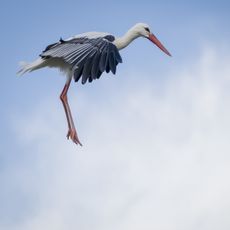Cold start may put autumn on hold
The Woodland Trust estimates that autumn fruits may be late this year because of last winter’s prolonged freeze


Victorian meteorologists considered autumn to begin on September 1, but climate change is causing the mellow season to be less predictable, as blackberries burst out in time for Wimbledon and the full glory of russet colours creeps nearer to October 1.
This year, the Woodland Trust, which studies the timings of common seasonal events beside records dating back to the 1700s through its Nature's Calendar project (www.naturescalendar.org.uk), is receiving particularly mixed messages. Indications are that autumn fruits will be delayed, due to last winter being the coldest for 30 years-normally, the first ripe berries are found around August 4, but few have been recorded this year.
Sightings of beech leaves turning were down from 116 last year to just two, rowan berries from 808 sightings to 44 at the start of the month, bramble fruits down to 81 compared to 1,000. Yet some people are also reporting a bumper crop of big, juicy blackberries. Project manager Kate Lewthwaite says: ‘We don't know yet how significant these figures are; it may be that there are just fewer people participating in the survey than last year.
Generally, there are fewer records available for autumn anyway-for some reason, people don't seem to find it as inspiring as spring. But we do know that flowering was delayed in many species due to the cold winter, and this has had a knock-on effect on fruiting. We're some way behind, with lots of unripe fruit still on the bushes.'
The ideal conditions for producing rich autumn colours are sunny days and chilly nights, but Dr Lewthwaite thinks the different amounts of rainfall across the UK in July will lead to geographical variants in autumn palettes, with early leaf drop being reported in the drier South. ‘Leaf-tinting can create a falsely premature autumn,' she explains. ‘The tree shuts up shop if it hasn't got enough water.'
New findings by Kew's Jodrell Laboratory suggests that plants can adapt to climate change better than was suggested in 2007, when the Intergovernmental Panel on Climate Change said that 20%-30% of plant species could be at risk of extinction due to global warming. Kew's study indicates that many species could quickly adapt to a temperature rise of two or three degrees.
Sign up for the Country Life Newsletter
Exquisite houses, the beauty of Nature, and how to get the most from your life, straight to your inbox.
Country Life is unlike any other magazine: the only glossy weekly on the newsstand and the only magazine that has been guest-edited by HRH The King not once, but twice. It is a celebration of modern rural life and all its diverse joys and pleasures — that was first published in Queen Victoria's Diamond Jubilee year. Our eclectic mixture of witty and informative content — from the most up-to-date property news and commentary and a coveted glimpse inside some of the UK's best houses and gardens, to gardening, the arts and interior design, written by experts in their field — still cannot be found in print or online, anywhere else.
-
 A well-connected rural playground with 23 acres on the edge of the South Downs National Park
A well-connected rural playground with 23 acres on the edge of the South Downs National ParkOld House Farm is an impressive family home with a wealth of amenities that would inspire any rural passion.
By Arabella Youens Published
-
 The UK gets its first ‘European stork village’ — and it's in West Sussex
The UK gets its first ‘European stork village’ — and it's in West SussexAlthough the mortality rate among white storks can be up to 90%, the future looks rosy for breeding pairs in southern England.
By Rosie Paterson Published
